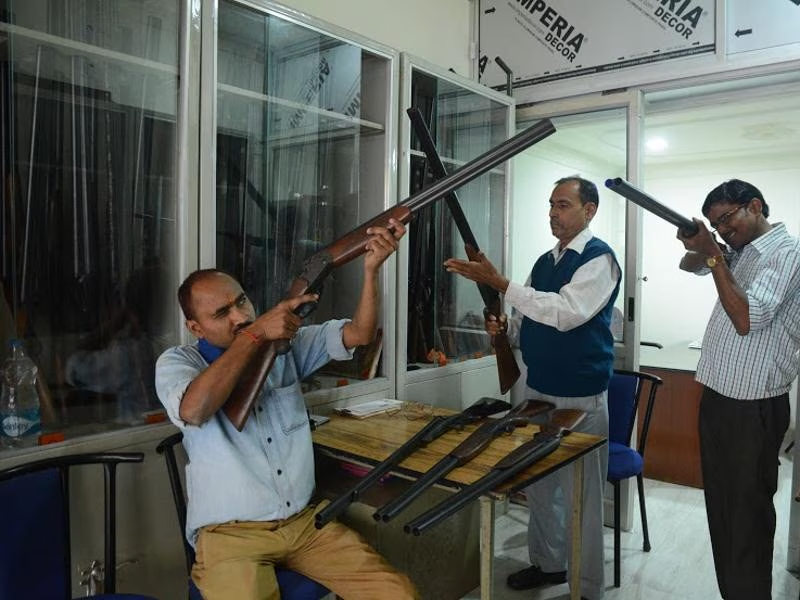In India, the intersection of politics and crime has become an alarming trend, where political leaders, in their pursuit of power and influence, often develop questionable associations with criminals and mafia figures. This relationship has far-reaching implications, not just for the leaders involved, but for the nation as a whole, undermining democratic institutions, governance, and public trust. While some political leaders benefit from these alliances in the short term, the long-term consequences can be disastrous, often leading to legal trouble, public disgrace, and loss of political careers.
The Nexus Between Politics and Crime
The collusion between politicians and criminals has deep historical roots in India. Political leaders, particularly in states with high crime rates, often rely on criminal elements for electoral success, funding, and strong-arm tactics. In return, criminals gain protection from prosecution, access to political networks, and the ability to launder their ill-gotten wealth.
This nexus is not confined to any one political party or region. Politicians in both national and regional parties have been found guilty of harboring close ties with underworld figures, mafia dons, and local gangsters, with the relationship proving mutually beneficial for both sides in many cases.
High-Profile Cases
- Dawood Ibrahim and Political Ties
One of the most notorious cases is the relationship between Indian politicians and Dawood Ibrahim, a globally recognized mafia don with deep roots in Mumbai. Dawood, who is believed to have masterminded the 1993 Mumbai bomb blasts, has been sheltered by various political leaders over the years. Reports suggest that certain politicians in Maharashtra turned a blind eye to his activities in exchange for financial favors and electoral support. Although Dawood fled to Pakistan, the lingering impact of his network has haunted Mumbai’s political landscape for decades. - Arun Gawli
Arun Gawli, a former gangster-turned-politician from Mumbai, has had a long-standing association with political figures in Maharashtra. Once a feared underworld figure, Gawli successfully transitioned into politics, winning elections and becoming a Member of the Legislative Assembly (MLA). Political parties have often courted him for his ability to mobilize voters in certain areas, despite his criminal record. Gawli’s rise is a glaring example of how criminals can be legitimized through political patronage. - UP Politicians and Mafia Gangs
In Uttar Pradesh, where mafia culture runs deep, several politicians have been linked to organized crime. The late MLA Mukhtar Ansari is a key example. A notorious gangster before entering politics, Ansari was involved in various criminal activities, including extortion and murder, but enjoyed protection from successive political regimes in the state. Despite multiple legal cases against him, Ansari remained an influential figure in UP politics for years, leveraging his muscle power to win elections and sustain his empire. - Lalu Prasad Yadav and Shahabuddin
In Bihar, former RJD leader Mohammad Shahabuddin, a four-time MP from Siwan, was known for his criminal record that included murder, kidnapping, and other heinous crimes. Lalu Prasad Yadav’s RJD supported Shahabuddin despite his tainted background, allowing him to operate with impunity. However, his eventual conviction and imprisonment brought significant embarrassment to the party and highlighted the deep-rooted connection between Bihar’s politicians and criminal elements.
How These Ties Can Lead to Trouble
Political leaders who associate with criminals and mafias face several potential pitfalls:
- Legal Consequences
Many political leaders have found themselves entangled in legal battles due to their association with criminals. As law enforcement agencies intensify their crackdown on organized crime, politicians connected to these networks risk being implicated in criminal activities, leading to arrest and prosecution. For instance, Shiv Sena leader Anand Dighe’s name was linked with the underworld, leading to investigations that tarnished the party’s image. - Public Disgrace
While criminal affiliations may help in securing short-term political gains, the long-term repercussions often include public disgrace and loss of credibility. In the age of media scrutiny and citizen activism, any hint of a politician’s involvement with criminals can be widely exposed, resulting in a damaged reputation and loss of voter trust. This has been evident in the careers of several politicians, who, after being exposed, have either been ousted from their parties or forced to resign. - Political Isolation
Politicians with criminal associations risk political isolation. As parties strive to maintain their image and legitimacy, they may choose to distance themselves from individuals who are perceived as liabilities. This was the case with Lalu Prasad Yadav and his handling of Shahabuddin, where Yadav eventually had to face criticism for shielding a criminal, leading to political fallout. - Threat to Governance and Public Trust
The association of politicians with criminals undermines the very fabric of governance. It erodes public trust in democratic institutions, fosters corruption, and impedes the rule of law. As seen in Bihar and UP, where mafia dons ruled local politics, this nexus often leads to a breakdown of law and order, making governance ineffective and compromising the welfare of citizens.
Conclusion: A Slippery Slope
While the political-criminal nexus may seem advantageous for leaders seeking power, it is a double-edged sword. The risks of being implicated in criminal cases, tarnishing public reputations, and losing political legitimacy far outweigh any short-term gains. In a democracy like India, where public scrutiny is growing, such associations are increasingly being called out, and leaders are being held accountable for their actions.
The path of hobnobbing with criminals may bring temporary success, but history shows that it can lead to a leader’s downfall, legal troubles, and the irreversible loss of trust.





